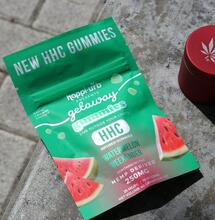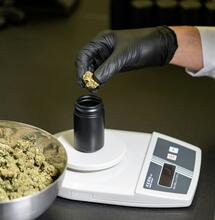New Jersey Eases Restrictions on Cannabis Edibles

New Jersey launched its legal cannabis market back in 2022. The state regulators initially did not permit retail of certain marijuana-infused edible products, including drinkables, baked goods, butters and other infused foods. The restriction applied for both the state’s medicinal and recreational market.
Classic THC brownies and cookies are finally coming to dispensaries across New Jersey, after the state’s cannabis regulators agreed to soften restrictions on edibles earlier this month. The regulative change for cannabis edibles comes nearly a year and a half since New Jersey officially started legal cannabis sales.
New Jersey’s Cannabis Regulatory Commission initially drafted the market rules in August 2021. Back then, it chose not to permit the retail of infused edibles that resemble food. The reason cited was difficulties in regulating kitchen environments. Only the sale of non-perishables, such as gummies and lozenges, were permitted at that time.
When the commission met in the first week of September, it finally proposed a revised rule that would expand the options in the edible category. This will put an end to NJ’s unique ban on edibles, which targeted both its recreational and medical markets.
Typically, the rules would demand that edible goods are manufactured uniformly, and that package labels detail information such as nutrition value and expiration date. The limit per serving remains 10 milligrams of THC for baked goods, and 5 milligrams of THC per drink.
The official enactment of the proposal is supposed to take place in December, however, licensed marijuana operators in the state who want to manufacture edibles can apply for a waiver.
Those interested can already apply for a waiver, according to the state Cannabis Regulatory Commission Executive Director, Jeff Brown.
“These waivers will allow for some immediate expansion of edible products in both the medicinal market, which is critical, as well as the adult-use market,” Brown told the Asbury Park Press. “These will enable us to start approving some products,” he said.
Edibles Won’t Be New Jersey’s Greatest Challenge
Edibles account for nearly a quarter of all marijuana purchases at the national level. Edibles’ popularity is definitely on the rise, and New Jersey edible manufacturers will finally be able to increase their earnings from this market segment. However, that wouldn’t be the biggest problem faced by New Jersey operators since the state’s market launch on April 21, 2022.
There have been successes, and there have been failures and much criticism thrown at NJ’s state regulators in the last 18 months. In the beginning, consumers could shop for legal pot, and limited edibles and vapes at 13 dispensaries. A year later, the number of dispensaries climbed to 24.
Over $320 million of recreational cannabis was sold from April 21 to Dec. 21, 2022, with the larger portion of profits going to multi-state operators who were already established as medicinal dispensaries; the state has collected over $20 million in tax revenue for the same time period.
More than 1,200 new licenses for cultivation, manufacturing and retail were awarded by the state regulator as the market expanded to recreational. However, many of the new license holders have spent a significant amount of time waiting with all the processes necessary to set up a business. Industry insiders, lawmakers, and the cannabis community in general, have sounded the alarm that the Garden State should have moved much more swiftly in terms of opening more local shops.
Shop owners have complained about lost applications and delays; many of them have waited months before being able to start operations, paying rent and other running costs for all that time and often ending up with huge debts. The market chasm has further frustrated investors as well as consumers willing to purchase at lower prices.
On the brighter side, New Jersey has still made plenty of moves deserving an applause. Some lawmakers and experts believe that the Garden State is ahead of other markets on the East Coast.
The CREAMM Act is pointed out as a stellar example in New Jersey’s cannabis legislature. This specific bill aims to allow those harmed by previous drug laws to take greater benefit from the cannabis reform.
Under the New Jersey law, a social equity excise fee is imposed on cultivators and retailers, which is $1.52 per ounce. In addition, a social equity tax is applied on each recreational marijuana purchase, which will now also extend to baked edibles and drinkables.
Overall, NJ’s state law attempts to prioritize businesses that belong to minority groups, women and veterans. About 70% of all cannabis licenses have been granted to operators with diverse ownership.
Also read on Soft Secrets:
- How Did New Jersey's Legal Weed Launch Go?


















